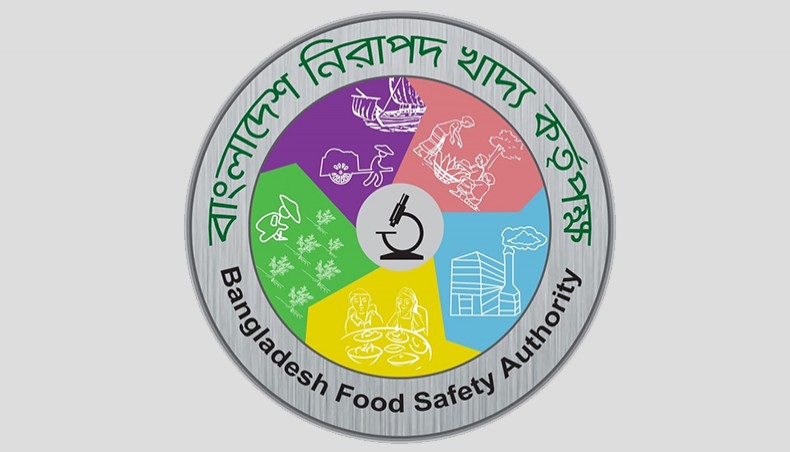Heavy metals in pesticides endanger farming, health
As many as 63 of the 67 pesticide samples tested recently by the Bangladesh Food Safety Authority contained heavy metals such as cadmium, chromium and lead in high concentrations.
Entomologists and agricultural scientists said that heavy metals should not be present in pesticides except for those using such materials as their active ingredients, which are not much used in Bangladesh.
The BFSA findings have thrust the country’s poor pesticide regulation in the spotlight again, with Department of Agricultural Extension officials insisting that there is nothing wrong with pesticides containing heavy metals.
‘Pesticides are poisons and should be pure. Impure poisons are even more dangerous,’ BFSA acting chairman Mahbub Kabir told New Age.
He said that the pesticides they tested between last November and December were popular among farmers and widely used in cultivating major crops such as rice, tea and vegetables.
Some of the pesticides contained one milligram of heavy metal or even more per kilogram or per litre, he said.
Some samples contained all of the three heavy metals, he said.
DAE plant protection wing deputy director Fakhrul Hassan, responsible for pesticide quality control, said that nowhere in the world pesticides were checked for heavy metal presence implying that there was no harm in them.
‘This is a conspiracy to destroy the country’s agriculture,’ said Fakhrul.
But Bangladesh Agricultural University’s agricultural chemistry professor Zakir Hossen said that there was no way heavy metals could be present in pesticides other than those that were using such metals as their active ingredients.
Aside from the metal-based pesticides, there are other groups of pesticides such as pyrethroid, nicotinoid, chlorinated, carbamate and organophosphate, all of which are very popular in Bangladesh.
‘The presence of heavy metals in pesticides is not acceptable,’ said Zakir.
Over 300 companies have approval for pesticide business in the country, mostly importing active ingredients in bulk from China, a country with reputation for supplying substandard chemicals to many countries, especially those like Bangladesh.
The import takes place without having to undergo any tests anywhere as long as the importers are registered with the Department of Agricultural Extension.
Big multinational and local companies formulate pesticides in their local plants.
The companies need to have the formulations approved by the department before marketing the pesticides.
The formulations are meant to keep pesticide toxicity within the prescribed limit determining the ratio at which active ingredients could be used.
Active ingredients are the chemicals meant to kill particular pests or clear weeds.
The formulation also allows pesticide volumes to be increased to a certain level by addition of inert materials.
Zakir said that heavy metals too are toxic but cheaper than many approved pesticide active ingredients such as carbamate.
‘It is likely that many businesses add heavy metals to their products to increase their profits,’ said Zakir.
The use of low quality inert materials in increasing pesticide volume could be another source of heavy metals in pesticides, he said.
The import of pesticides, which completes in about 300 consignments a month, occurs without any test as long as the importing companies has the DAE approval to market them.
The imported pesticides are never tested before they are allowed inside the country.
The permission to market pesticide comes on minimal tests. One of the tests sees its efficacy in killing pests while another examines its toxicity on fishes.
The agricultural extension department has no way of testing inert material quality.
Although the law requires the department to regularly check pesticide quality by visiting pesticide formulating plants such visit rarely occurs.
The department does not have any data on the tests done on pesticides randomly collected by their field officers to check their quality.
The use of pesticides gained popularity in Bangladesh in the 1960s.
After a decade of continued decline, the consumption of pesticides has been rising again since 2016, with the country setting it a new strategy to increase vegetable and fruit productions.
In 2018, the latest DAE data showed, the consumption of pesticides stood at 39,237 tonnes.
After tests found heavy metals in pesticides, the food safety authority had decided to make the heavy metal test mandatory for importing pesticides from this past January. But the decision had to be postponed until June following pressure from the businesses.
The food safety authority had also shared its findings with the agricultural extension department.
DAE plant protection wing director AZM Sabbir Ibna Jahan said that they had tasked a group of scientists with investigating the matter.
He refused to make any comment until the inquiry was over, which is expected by June.
Bangladesh Crop Protection Association’s secretary general Habibur Rahman, too, refused to comment on the matter. This association represents the pesticide businesses.
The food safety authority moved to check pesticide quality amid growing evidence of heavy metals permeating the food chain. Heavy metals are often found in foods—from cow milk to vegetables.
The authority has long been looking for leaks through which heavy metals are entering the food chain.
The dumping of untreated industrial wastes has been the biggest known source of heavy metal contamination.
Soil scientists have also long been warning of plants receiving heavy metals from adulterated fertilisers and pesticides.
Adulterated chemical inputs used in agriculture have also been causing the soil to rapidly lose its fertility after the 1990s, they further warned.
Physicians, on the other hand, have warned of a rapid increase in diseases and deaths linked to failure of organs such as kidney and liver and cancers because of heavy metals entering the food chain.
News Courtesy: www.newagebd.net











